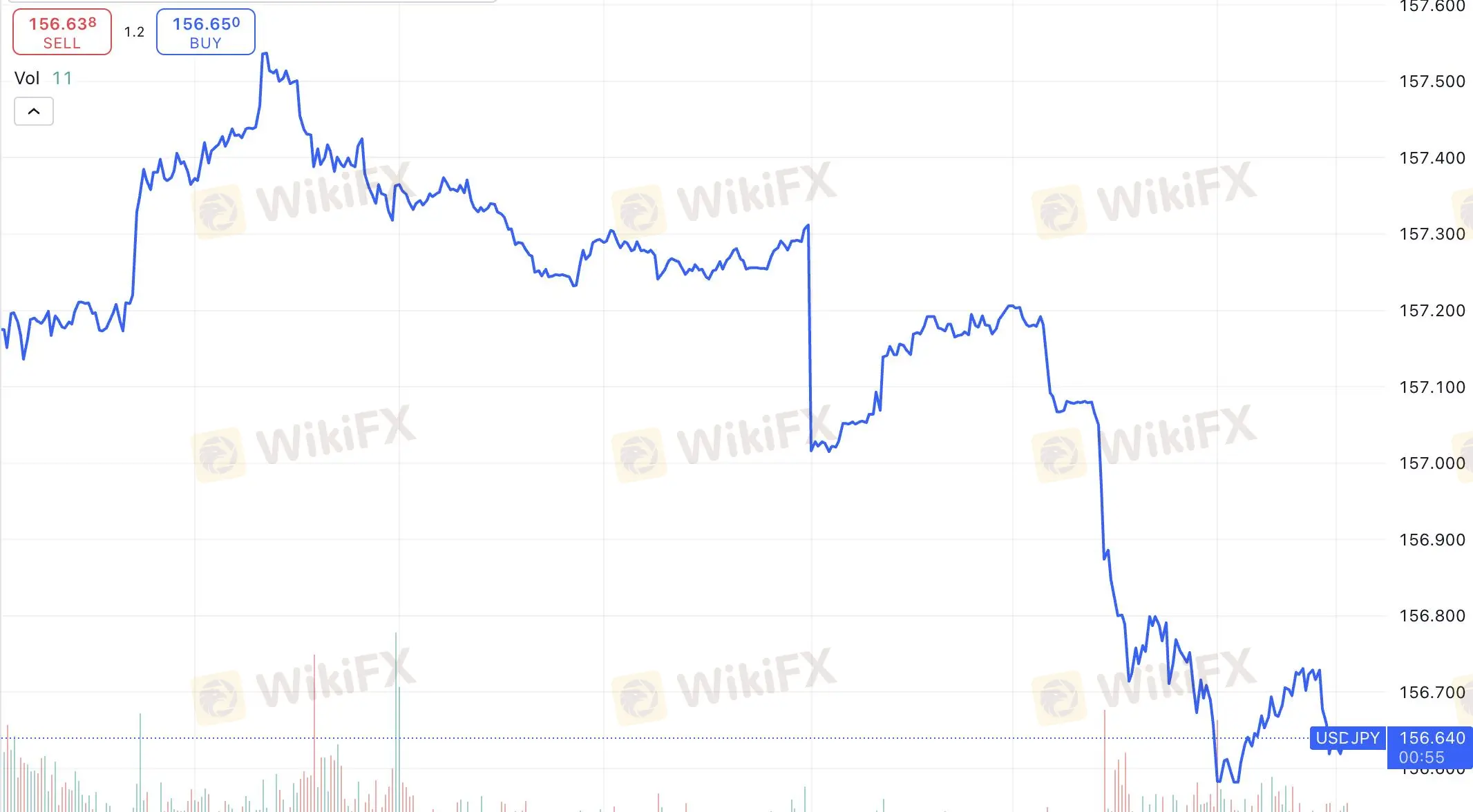简体中文
繁體中文
English
Pусский
日本語
ภาษาไทย
Tiếng Việt
Bahasa Indonesia
Español
हिन्दी
Filippiiniläinen
Français
Deutsch
Português
Türkçe
한국어
العربية
Has the Yen Lost Its Safe-Haven Status?
Abstract:The Japanese yen failed to create a miracle in 2024, continuing its four-year decline against the US dollar. Does the yen still retain its safe-haven properties? Will the interest rate differential between the US and Japan narrow?

By the end of 2024, the exchange rate hovered around 156 yen to the dollar, with a 10% drop for the year, surpassing the 7% decline in 2023. Contrary to market expectations, the US-Japan interest rate gap did not narrow. Since 2023, the significant divergence between the Federal Reserve's interest rate hikes and the Bank of Japan's ongoing accommodative monetary policy has rapidly expanded this gap. This has driven a surge in “carry trades,” where investors borrow yen at low rates and invest in higher-yielding assets.
Moreover, while the Fed did cut rates in 2024, the pace of those cuts was slow, failing to effectively reduce the interest rate differential or curb the yen's depreciation. As a result, the interest rate gap between the US and Japan remains wide, pushing the yen to its historical low range of 156 yen to the dollar. The trend of speculative yen selling continues to expand, and volatility risks for the yen are expected to persist as we enter 2025.

The Yen as a Safe-Haven Currency
The yen has long been considered a “safe-haven” currency. Even in a low-interest environment, the yen can attract safe-haven capital due to Japan's stable government and large foreign exchange reserves. However, Japan's prolonged low-interest-rate environment and the Bank of Japan's monetary easing policies have diminished the yen's safe-haven appeal. The Bank's negative interest rates and large-scale quantitative easing (QE) have supported economic growth but also depressed the yens yields, reducing its attractiveness as a safe-haven asset.
Despite the large US-Japan interest rate differential, the yen still maintains a degree of safe-haven demand in times of rising global uncertainty. In the face of geopolitical crises or global financial market volatility, the yens safe-haven properties may come back into play, attracting capital inflows. For example, during periods of global market uncertainty, the yen may still draw investors due to its stable government and strong foreign exchange reserves.
Looking ahead to 2025, the yens performance will remain highly sensitive to global economic and geopolitical developments. As market uncertainty increases, the yen may regain its role as a safe-haven currency. Therefore, investors will need to closely monitor changes in the global landscape.

Disclaimer:
The views in this article only represent the author's personal views, and do not constitute investment advice on this platform. This platform does not guarantee the accuracy, completeness and timeliness of the information in the article, and will not be liable for any loss caused by the use of or reliance on the information in the article.
Read more

BlackBull: A Closer Look at Its Licenses
When selecting a broker, understanding its regulatory standing is an important part of assessing overall reliability. For traders seeking to protect their capital, ensuring that a platform operates under recognised and stringent oversight can make all the difference. Keep reading to learn more about BlackBull and its licenses.

Dark Side of AETOS: They Don’t Want You to Know
AETOS is an Australia-based broker. All over the internet, you will find positive reviews about this broker, but no one is talking about the risks involved with AETOS. However, we have exposed the hidden risks associated with AETOS

Contemplating Investments in Quotex? Abandon Your Plan Before You Lose All Your Funds
Have you received calls from Quotex executives claiming to offer you returns of over 50% per month? Do you face both deposit and withdrawal issues at this company? Or have you faced a complete scam trading with this forex broker? You're not alone. Here is the exposure story.

15 Brokers FCA Says "Are Operating Illegally" Beware!
If a reputable regulator issues a warning about unlicensed brokers, it's important to take it seriously — whether you're a trader or an investor. Here is a list you can check out- be cautious and avoid getting involved with these scam brokers.
WikiFX Broker
Latest News
Scam Alert: Revealing Top Four Forex Scam Tactics Employed to Dupe Investors
Meta says it won't sign Europe AI agreement, calling it an overreach that will stunt growth
Ether and trading stocks take the crypto spotlight as Congress passes historic stablecoin bill
Inflation outlook tumbles to pre-tariff levels in latest University of Michigan survey
Peter Thiel-backed cryptocurrency exchange Bullish files to go public on NYSE
What a Trump, Powell faceoff means for your money
Ether takes crypto spotlight as Congress passes historic stablecoin bill
Lead Prices Remain in the Doldrums Despite Seasonal Expectations
Myanmar Tin Ore Shipments from Wa Region Set to Resume
Major U.S. Banks Plan Stablecoin Launch Amid Crypto Regulations
Currency Calculator


